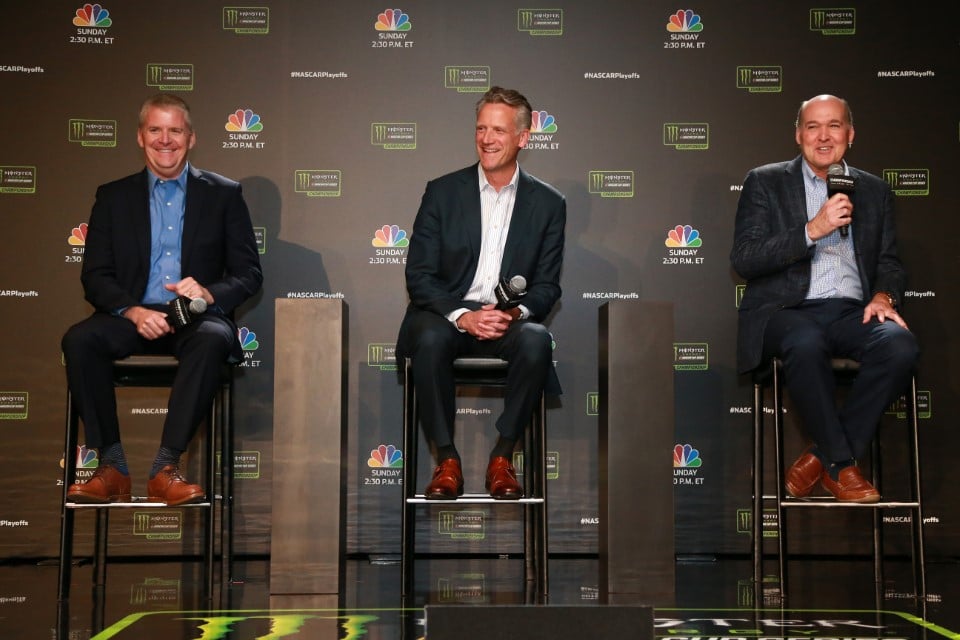Inflection Point (noun): a point at which a major or decisive change takes place. Example: The future of the NASCAR Cup Series reached an inflection point after owners failed to show for a preplanned negotiating session with the sport on April 5, and then made their boycott public.
That’s where NASCAR is right now, all sides figuring out where to go from here after a deliberate action designed to ratchet up tensions over money. Could ownership be on the verge of something more serious, like boycotting an actual race in order to prove their current dissatisfaction with executive leadership?
To answer that question, we need to take a step back and look into over a year’s worth of buildup.
The debut of the sport’s Next Gen chassis in 2022 was phenomenal for NASCAR, happening at the perfect time following years of sagging ratings and support. Television ratings stabilized, their highest since 2017, while a flurry of first-time winners, new Championship 4 participants and fresh ownership groups (23XI Racing, Trackhouse Racing Team) injected storylines galore.
The sport’s popularity reached a peak just before negotiating windows began this spring for the sport’s next television contract. The current 10-year NASCAR deal, which runs through 2024, will bring in a total of $8.2 billion in revenue over that time period for coverage of the sport’s Cup, Xfinity and Craftsman Truck series. It’s an important lifeline for NASCAR’s profitability and growth in an era where track seating’s been reduced amidst a deepening attendance crisis for all sports — even the NFL.
But that $820 million per year from broadcast television isn’t distributed evenly across the board. 65% of that money goes to racetracks, 10% to NASCAR itself and just 25% is pocketed by the race teams who actually compete each weekend. Keep in mind roughly half of the 36 points-paying Cup races are run at tracks directly owned by NASCAR itself, giving them additional cashflow to be used at their discretion.
Compare that to Cup Series ownership. They’ve had to deal with rising costs during the Next Gen transition, rendering their own fleet of cars a worthless hunk of sheet metal while buying up a supply of centralized parts. A glutton of successful multi-car teams has made the cost of entry that much higher, along with ballooning charter prices since the formation of NASCAR’s franchise-based system in 2016.
The move to guarantee 36 spots on the grid…
Click Here to Read the Full Original Article at …

